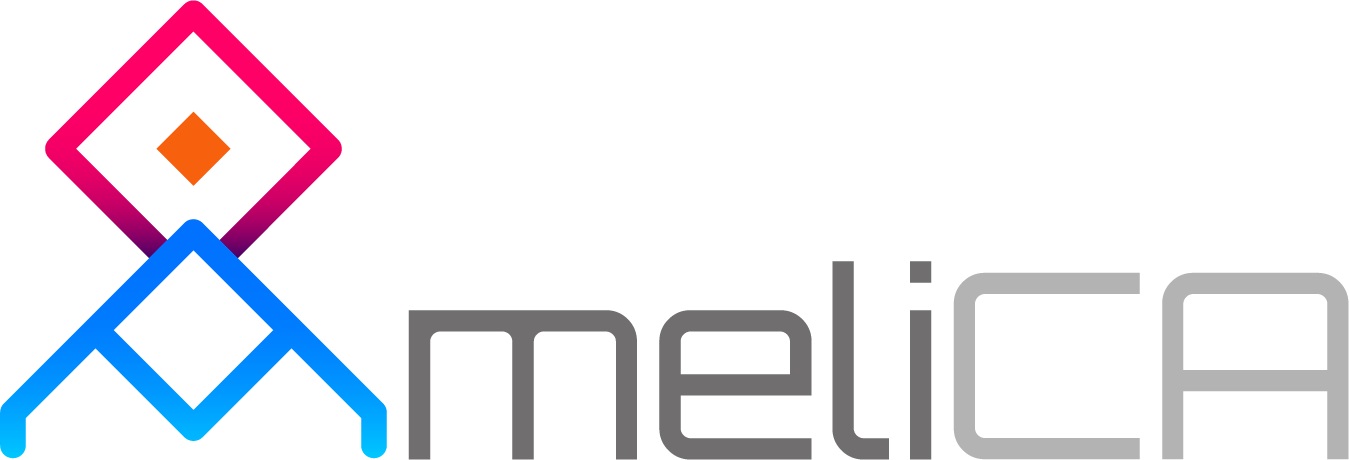Respeitar a diversidade cultural na ética aplicada à IA : uma nova abordagem para uma governança multicultural
DERECHOS RESERVADOS DE AUTOR
Todo documento incluido en la revista puede ser reproducido total o parcialmente, siempre y cuando se respete su contenido original, se cite la fuente y se use con fines académicos no comerciales. Misión Jurídica y su contenido se encuentra protegido bajo una Licencia Creative Commons Atribución-NoComercial-SinDerivar 4.0 Internacional.

Misión Jurídica por Misión Jurídica se distribuye bajo una Licencia Creative Commons Atribución-NoComercial-SinDerivar 4.0 Internacional.
Basada en una obra en http://unicolmayor.edu.co/publicaciones/index.php/mjuridica/index.
Permisos que vayan más allá de lo cubierto por esta licencia pueden encontrarse en http://unicolmayor.edu.co/publicaciones/index.php/mjuridica/index.
Mostrar biografia dos autores
A inteligência artificial parece fazer parte do nosso dia a dia. Para alguns, representa a promessa de um mundo melhor e muitas melhorias que seriam benéficas para a humanidade. Para outros, a IA é vista como uma ameaça, se não uma ameaça existencial que precisa ser rigorosamente controlada. Seja qual for a posição, a necessidade de regular a IA é agora amplamente reconhecida. Sem um instrumento legal que ofereça uma estrutura específica para o desenvolvimento e uso da IA, a ética foi convocada para estabelecer padrões e estabelecer barreiras. No entanto, o número de documentos referentes a padrões éticos para IA aumentou exponencialmente até chegar a um ponto em que é difícil saber como usá-los com eficiência. Esses documentos foram emitidos principalmente para promover interesses adquiridos, e a definição de um código universal de ética em IA tem sido vista como uma solução para a governança global de IA. Se um sistema de governança global é necessário para evitar resultados negativos da IA, parece que a ideia de um código de ética universal nega a diversidade de pontos de vista éticos baseados na diversidade de culturas filosóficas de que o mundo é feito. Em vez de oferecer uma ferramenta legítima e eficiente, tal solução poderia levar a tensões culturais entre os principais atores no campo da IA, como é o caso da China e dos Estados Unidos. Para evitar situações conflitantes decorrentes da negação da diversidade cultural, é mais do que nunca necessário deixar de lado a ideia de um código universal de IA
Visualizações de artigos 313 | Visitas em PDF 239
Downloads
- Jobin, Anna, Ienca, Marcello and Vayena, Effy. “The Global Landscape of AI Ethics Guidelines.” Nature Machine Intelligence 1.9 (2019): 389-99.
- Zeng, Yi, Lu, Enmeng, and Huangfu, Cunqing. “Linking Artificial Intelligence Principles.” CEUR Workshop Proceedings 2301, paper 15 (2019).
- Jelinek, Thorsten. “The Future Rulers? On Artificial Intelligence Ethics and
- Governance.” In Billows W. and Körber S. Reset Europe: Time For Culture To Give Europe New Momentum. Institut für Auslandsbeziehungen (2020): 244-252.
- OECD. Recommendation of the Council on Artificial Intelligence. OECD Legal Instrument 0449 (2021). Available at
- UNESCO. Preliminary report on the first draft of the Recommendation on the Ethics of Artificial Intelligence. (2020). Available at https://events.unesco.org/event?id=515530304
- HLEGAI - High-Level Expert Group on Artificial Intelligence. Ethics guidelines for Trustworthy AI. European Commission (2019). Available at file:///D:/Publications/En%20cours/ICSSD/ai_hleg_ethics_guidelines_for_trustworthy_ ai-en_87F84A41-A6E8-F38C-BFF661481B40077B_60419.pdf
- G20. Ministerial Statement on Trade and Digital Economy. Tsukuba City, Japan, 8-9 June 2019. Available at https://www.mofa.go.jp/files/000486596.pdf
- CAHAI - Ad hoc Committee on Artificial Intelligence. “Towards regulation of AI systems: Global perspectives on the development of a legal framework on Artificial Intelligence (AI) systems based on the Council of Europe’s standards on human rights, democracy and the rule of law.” Council of Europe (2020). Available at https://rm.coe.int/prems-107320-gbr-2018-compli-cahai-couv-texte-a4-bat-web/1680a0c17a
- Bielby, Jared. “Comparative philosophies in intercultural information ethics.”
- Confluence: Online Journal of World Philosophies 2 (2015): 233-253.
- IEEE. Ethically Aligned Design First Edition: Prioritizing Human Wellbeing with Autonomous and Intelligent Systems. Institute of Electrical and Electronics Engineers (2019). https://standards.ieee.org/content/dam/ieee-standards/standards/web/documents/other/ead1e.pdf?utm_medium=undefined&utm_source=undefined&utm_campaign=undefined&utm_content=undefined&utm_term=und efined
- European Commission. Proposal for a Regulation of the European Parliament and of the Council, laying down harmonised rules on artificial intelligence (artificial intelligence act) and amending certain union legislative acts. COM(2021) 206 final, 2021/0106(COD). Brussels (2021). Available at https://eur-lex.europa.eu/legal-content/EN/TXT/HTML/?uri=CELEX:52021PC0206&from=EN
- Aristotle. History of Animals. Translated by D’Arcy Wentworth Thompson. The Internet Classics Archive (2000). Available at http://classics.mit.edu/Aristotle/history_anim.html
- Lovejoy, Arthur O. The Great Chain of Being: A Study of the History of an Idea. Harvard University Press (1964).
- Heidegger, Martin. The Question Concerning Technology.1958.
- Simondon, Gilbert. On the Mode of Existence of Technical Objects. Translated form French by Cécile Malaspina and John Rogove. Univocal Publishing (2017) [1958].
- Feenberg, Andrew. Transforming Technology: A Critical Theory Revisited. Oxford University Press (2002).
- Evans, Lewis. The Satires of Juvenal, Persius, Sulpici, and Luculius. Henry G. Bohn (1860).
- Goffi, Emmanuel R. “Escaping the Western Cosm-Ethical Hegemony: The Importance of Cultural Diversity in the Ethical Assessment of Artificial Intelligence.” AI Ethics Journal 2(2)-1 (2021).
- Auernhammer, Jan. “Human-centered AI: The role of Human-centered Design Research in the development of AI.” In Boess, S., Cheung, M., and Cain, R. (eds.). Synergy - DRS International Conference 2020, (2020). Available at https://dl.designresearchsociety.org/drs-conference-papers/drs2020/researchpapers/89/
- Hagendorf, Thilo. “The Ethics of AI Ethics: An Evaluation of Guidelines.” Minds and Machines 30 (2020): 99-120. Available at https://link.springer.com/content/pdf/10.1007/s11023-020-09517-8.pdf
- Greene, Daniel, Hoffmann, Anna Lauren, and Stark, Luke. “Better, Nicer, Clearer, Fairer: A Critical Assessment of the Movement for Ethical Artificial Intelligence and Machine Learning.” HICSS (2019).
- Fjeld, Jessica, Achten, Nele, Hilligoss, Hannah, Nagy, Adam, Adam, and Srikumar, Madhulika. “Principled Artificial Intelligence: Mapping Consensus in Ethical and Rights- Based Approaches to Principles for AI.” Berkman Klein Center Research Publication, 2020.1 (2020).
- United Nations. Universal Declaration of Human Rights. United Nations General Assembly, Paris (1948). Available at https://www.un.org/en/ga/search/view_doc.asp?symbol=A/RES/217(III)
- UNDP. Human Development Report. Oxford Oxford University Press (1994). Available at http://hdr.undp.org/sites/default/files/reports/255/hdr_1994_en_complete_nostats.pdf
















